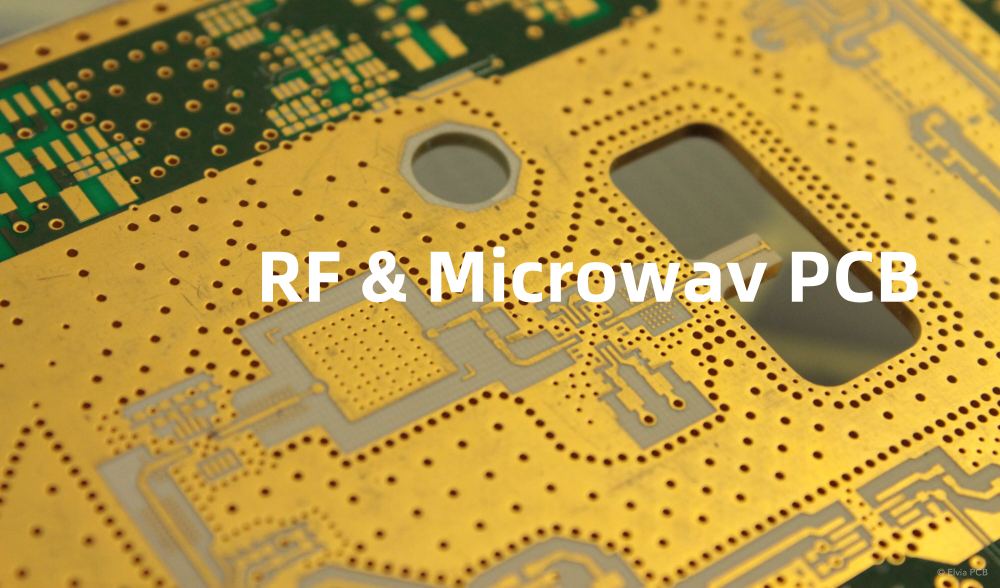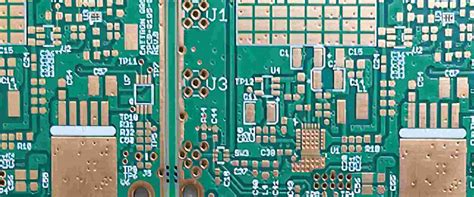Introduction to RAYPCB
RAYPCB is a leading PCB manufacturer based in China, known for its high-quality PCB fabrication services and innovative solutions. As the first PCB manufacturer in China to offer conformal coating as part of their PCB fabrication process, RAYPCB has set a new standard in the industry. With their state-of-the-art facilities and experienced team of professionals, RAYPCB is committed to providing their customers with the best possible PCB solutions.
What is Conformal Coating?
Conformal coating is a protective layer applied to PCBs to shield them from environmental factors such as moisture, dust, chemicals, and extreme temperatures. This thin, transparent coating conforms to the contours of the PCB, providing an extra layer of protection without adding significant weight or bulk to the board. Conformal coating helps to improve the reliability and longevity of PCBs, making them suitable for use in harsh environments or critical applications.
Types of Conformal Coating
There are several types of conformal coating materials available, each with its own unique properties and advantages:
-
Acrylic: Acrylic conformal coatings offer excellent moisture and fungus resistance, as well as good electrical insulation properties. They are easy to apply and remove, making them a popular choice for many applications.
-
Silicone: Silicone conformal coatings provide excellent protection against extreme temperatures and UV radiation. They are highly flexible and offer good moisture resistance, making them suitable for use in outdoor applications.
-
Polyurethane: Polyurethane conformal coatings offer excellent abrasion and chemical resistance, as well as good electrical insulation properties. They are durable and provide a high level of protection against mechanical stress.
-
Epoxy: Epoxy conformal coatings provide superior chemical and abrasion resistance, as well as excellent electrical insulation properties. They are ideal for use in harsh environments where high levels of protection are required.
-
Parylene: Parylene conformal coatings are ultra-thin, pinhole-free coatings that offer excellent moisture and chemical resistance. They are applied using a vapor deposition process, resulting in a highly conformal and uniform coating.
| Coating Type | Moisture Resistance | Temperature Resistance | Abrasion Resistance | Chemical Resistance |
|---|---|---|---|---|
| Acrylic | Good | Moderate | Moderate | Good |
| Silicone | Good | Excellent | Moderate | Moderate |
| Polyurethane | Good | Good | Excellent | Good |
| Epoxy | Excellent | Good | Excellent | Excellent |
| Parylene | Excellent | Good | Good | Excellent |
Benefits of Conformal Coating in PCB Manufacturing
Incorporating conformal coating into the PCB manufacturing process offers several key benefits:
-
Enhanced protection: Conformal coating provides an extra layer of protection against environmental factors, increasing the reliability and longevity of PCBs.
-
Improved performance: By shielding PCBs from moisture, dust, and other contaminants, conformal coating helps to maintain the electrical integrity of the board, resulting in improved performance.
-
Cost-effective solution: Applying conformal coating during the PCB fabrication process is more cost-effective than applying it as a separate post-production step, saving time and resources.
-
Customizable options: With a range of conformal coating materials available, RAYPCB can offer customized solutions tailored to the specific requirements of each project.

RAYPCB’s Conformal Coating Process
RAYPCB has invested in state-of-the-art equipment and training to ensure that their conformal coating process meets the highest industry standards:
-
Material selection: RAYPCB works closely with clients to select the most suitable conformal coating material based on the specific requirements of each project.
-
Surface preparation: Prior to applying the conformal coating, the PCB surface is thoroughly cleaned and prepared to ensure optimal adhesion.
-
Application methods: RAYPCB employs various application methods, including spraying, dipping, and brushing, to ensure even coverage and a smooth finish.
-
Curing process: After application, the conformal coating is cured using the appropriate method (e.g., air drying, heat curing, or UV curing) to achieve the desired properties.
-
Quality control: RAYPCB has rigorous quality control measures in place to ensure that every PCB meets the required specifications and standards.
Applications of Conformal Coated PCBs
Conformal coated PCBs are used in a wide range of industries and applications where reliability and protection against environmental factors are critical:
-
Automotive electronics: Conformal coating helps to protect Automotive PCBs from moisture, temperature fluctuations, and vibrations, ensuring reliable performance in challenging environments.
-
Aerospace and defense: In aerospace and defense applications, conformal coated PCBs are essential for withstanding extreme temperatures, high altitudes, and exposure to chemicals and radiation.
-
Medical devices: Conformal coating is crucial for protecting PCBs in medical devices from moisture, chemicals, and sterilization processes, ensuring patient safety and device reliability.
-
Industrial equipment: In industrial settings, conformal coated PCBs are used to withstand harsh environments, including exposure to dust, oils, and corrosive chemicals.
-
Consumer electronics: Conformal coating helps to protect consumer electronics from moisture, dust, and accidental spills, extending the lifespan of the devices.
RAYPCB’s Commitment to Quality and Innovation
RAYPCB is committed to providing its customers with the highest quality PCB solutions and staying at the forefront of industry innovation. By being the first PCB manufacturer in China to offer conformal coating as part of their fabrication process, RAYPCB has demonstrated its dedication to meeting the evolving needs of its clients.
Investment in state-of-the-art equipment
RAYPCB has invested heavily in advanced equipment and technologies to ensure that their PCB fabrication processes, including conformal coating, are of the highest quality. This includes automated coating systems, precision dispensing equipment, and advanced curing ovens.
Experienced team of professionals
RAYPCB’s team of experienced professionals, including engineers, technicians, and quality control specialists, work together to ensure that every PCB meets the required specifications and standards. The team undergoes regular training to stay up-to-date with the latest industry trends and technologies.
Stringent quality control measures
RAYPCB has implemented a comprehensive quality management system that covers all aspects of the PCB fabrication process, from material selection to final inspection. This includes strict adherence to international standards, such as ISO 9001, ISO 14001, and IATF 16949, as well as regular audits and continuous improvement initiatives.
Customized solutions for clients
RAYPCB works closely with its clients to understand their specific requirements and develop customized PCB solutions that meet their needs. This includes selecting the most suitable conformal coating material, optimizing the PCB design for enhanced protection, and providing guidance and support throughout the entire fabrication process.
Future Trends in Conformal Coating and PCB Manufacturing
As the electronics industry continues to evolve, conformal coating and PCB manufacturing technologies are also advancing to meet new challenges and demands:
-
Nano-coatings: Nano-coatings, such as graphene and carbon nanotubes, are being explored as potential conformal coating materials due to their exceptional electrical, thermal, and mechanical properties.
-
Environmentally friendly materials: There is a growing demand for eco-friendly conformal coating materials that minimize environmental impact and comply with global regulations, such as REACH and RoHS.
-
Selective coating: Advancements in selective coating technologies allow for more precise application of conformal coatings, reducing material waste and improving efficiency.
-
Intelligent coating systems: The integration of sensors and monitoring systems into conformal coatings enables real-time monitoring of PCB performance and early detection of potential issues.
-
Collaborative innovation: Increased collaboration between PCB manufacturers, material suppliers, and end-users is driving innovation in conformal coating and PCB manufacturing, leading to the development of new solutions and best practices.
Frequently Asked Questions (FAQ)
-
Q: What is the difference between conformal coating and potting?
A: Conformal coating is a thin, protective layer applied to the surface of a PCB, while potting involves encapsulating the entire PCB or components in a thick, protective resin. Conformal coating is more lightweight and allows for easier access to the PCB for repairs or modifications, while potting provides more robust protection against mechanical stress and impact. -
Q: Can conformal coating be removed if needed?
A: Yes, most conformal coatings can be removed using the appropriate solvents or stripping agents. However, the ease of removal depends on the type of coating material and the method of application. Some coatings, such as parylene, are more difficult to remove than others. -
Q: How does conformal coating affect the electrical properties of a PCB?
A: Conformal coatings are designed to have minimal impact on the electrical properties of a PCB. Most coating materials have high dielectric strength and insulation resistance, which helps to maintain the electrical integrity of the board. However, it is essential to select the appropriate coating material and thickness to avoid any adverse effects on signal integrity or high-frequency performance. -
Q: Can conformal coating be applied to flexible PCBs?
A: Yes, conformal coating can be applied to flexible PCBs, but the choice of coating material and application method must be carefully considered. Some coating materials, such as silicone and polyurethane, are more flexible and suitable for use on flexible PCBs. The coating process must also be optimized to ensure even coverage and avoid any cracking or delamination during flexing. -
Q: How long does conformal coating last?
A: The lifespan of a conformal coating depends on various factors, including the type of coating material, the environment in which the PCB operates, and the thickness of the coating. In general, conformal coatings can last for several years or even decades, providing long-term protection for the PCB. Regular inspections and maintenance can help to extend the lifespan of the coating and ensure optimal performance.
Conclusion
RAYPCB’s introduction of conformal coating as part of their PCB fabrication process has set a new standard for PCB manufacturing in China. By offering this value-added service, RAYPCB is helping its clients to enhance the reliability, longevity, and performance of their PCBs, while also reducing costs and streamlining the production process.
As the electronics industry continues to evolve, RAYPCB remains committed to staying at the forefront of innovation and providing its customers with the best possible PCB solutions. With their state-of-the-art facilities, experienced team of professionals, and dedication to quality and customization, RAYPCB is well-positioned to meet the diverse needs of clients across a wide range of industries and applications.
By choosing RAYPCB as their PCB manufacturing partner, companies can benefit from the latest advancements in conformal coating technology, as well as the peace of mind that comes with working with a trusted and experienced provider. As the first PCB manufacturer in China to offer conformal coating, RAYPCB is setting the pace for the industry and helping to drive innovation and growth in the years to come.

No responses yet